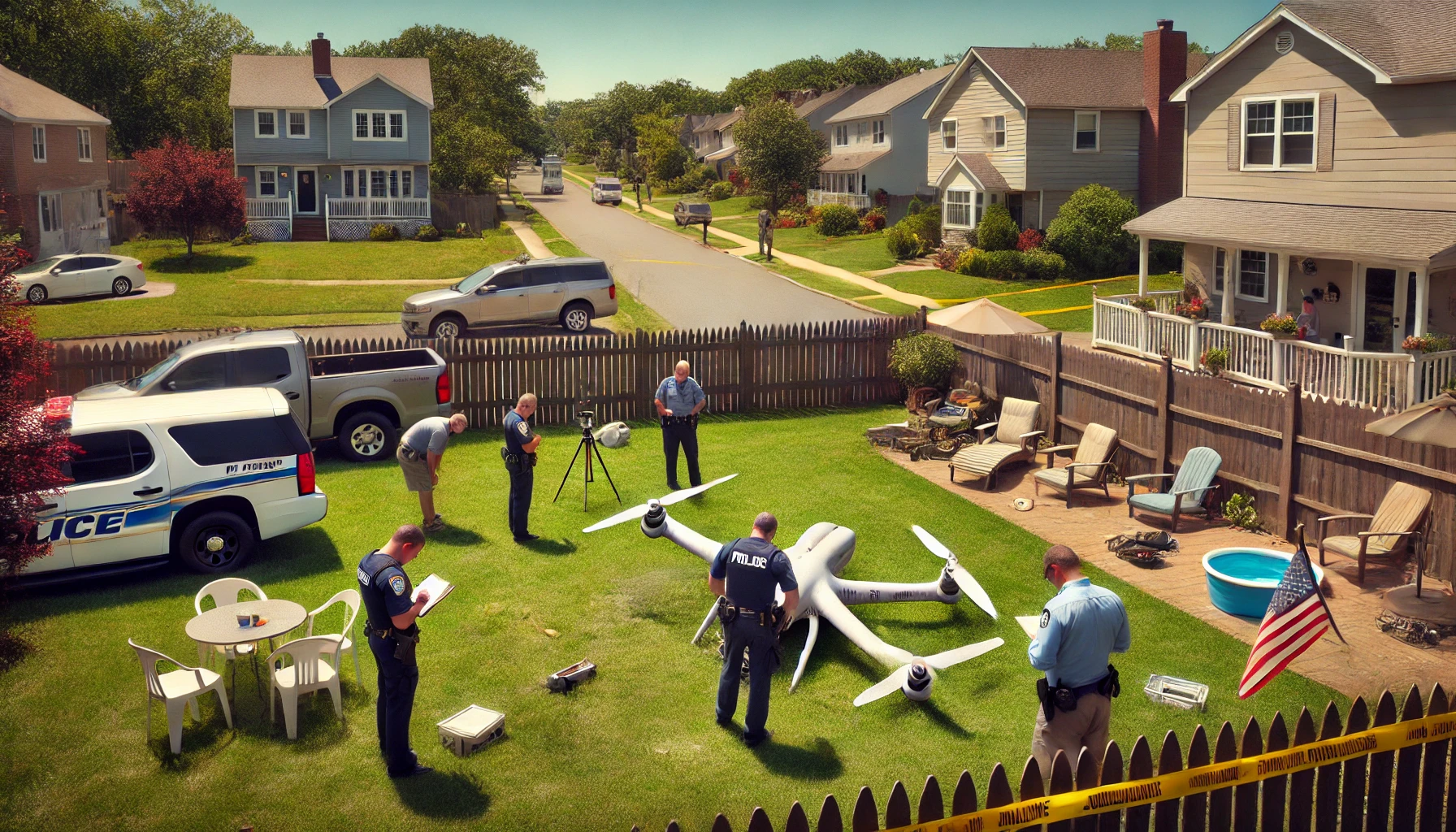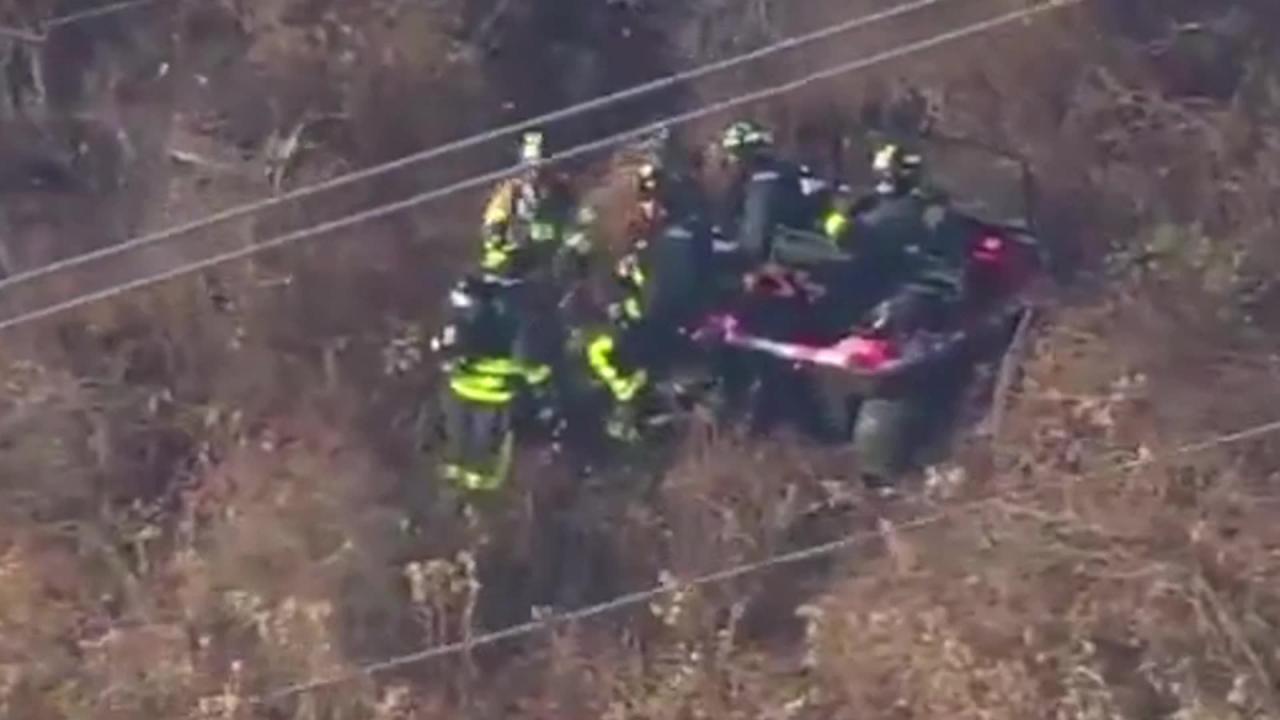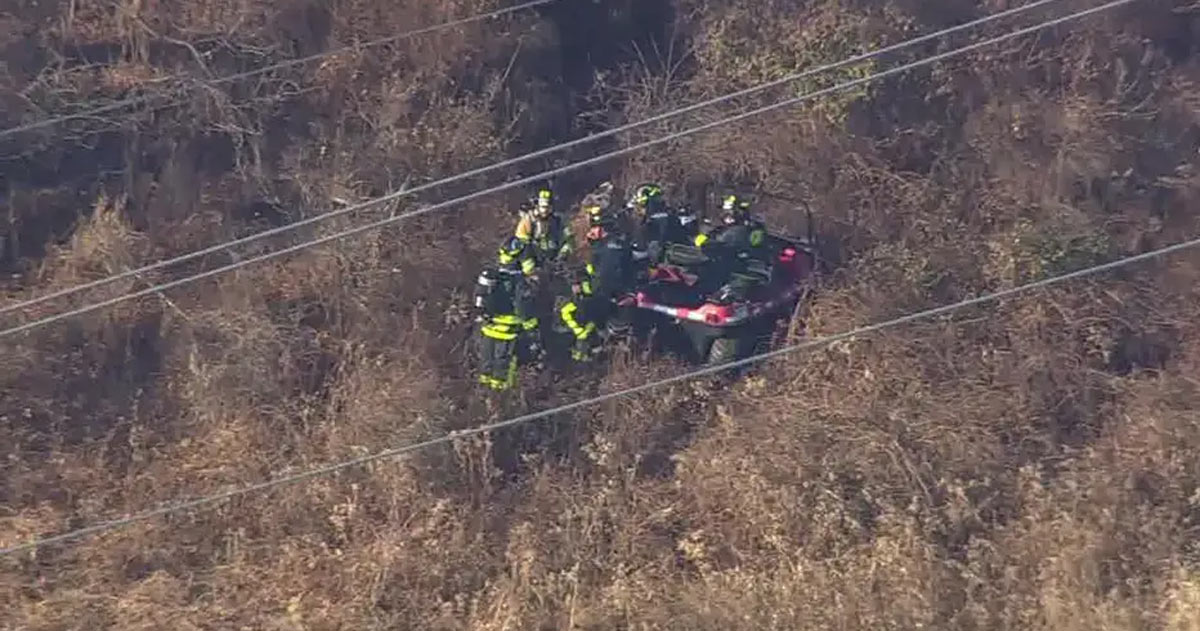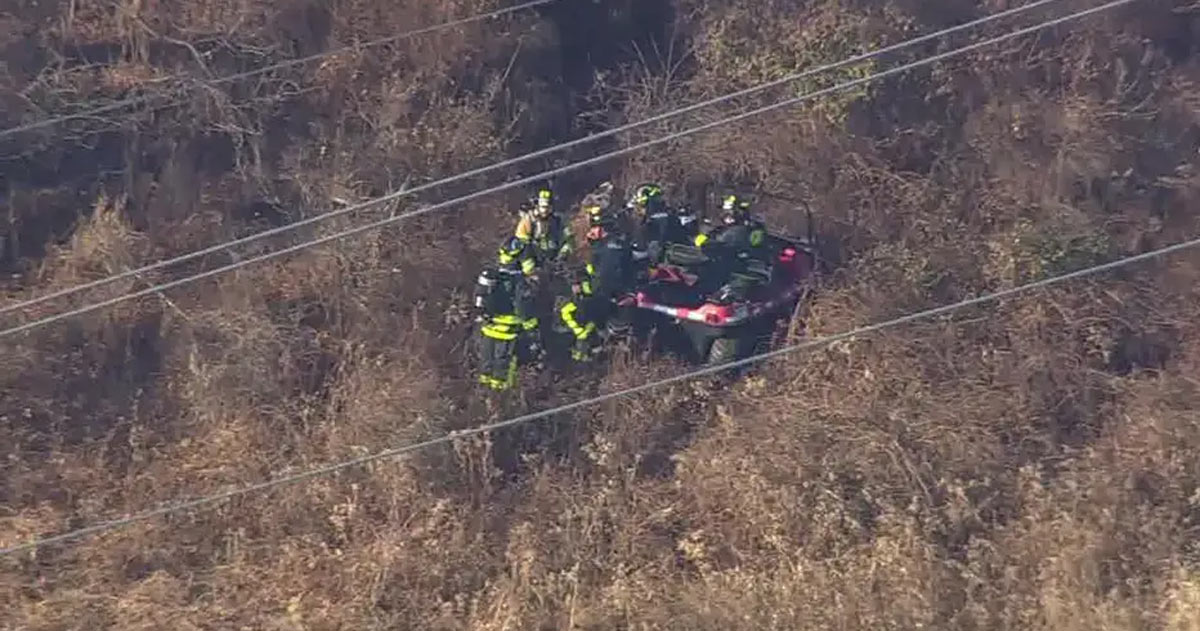Drone crashes in New Jersey have become a growing concern, raising questions about safety regulations, technological advancements, and the potential risks to both people and property. This overview delves into the recent incidents, exploring the contributing factors, regulatory landscape, and the crucial role of technological improvements in mitigating future accidents. We examine the impact on communities, liability issues, and propose strategies for enhancing safety through improved regulations and public awareness.
The increasing popularity of drones for both recreational and commercial use in New Jersey has unfortunately led to a rise in accidents. Understanding the causes of these crashes is vital for preventing future incidents and ensuring responsible drone operation. This analysis considers various aspects, from the types of drones involved and the specific circumstances of each crash to the broader implications for public safety and legal liability.
Recent Drone Crashes in New Jersey

The increasing popularity of drones in New Jersey has unfortunately been accompanied by a rise in reported crashes. This necessitates a closer examination of these incidents, their impact on communities, and the measures needed to improve safety and responsible drone operation.
Recent Drone Crash Incidents in New Jersey

Precise data on drone crashes in New Jersey requires access to official accident reports, which are not always publicly available in a consolidated format. However, news reports and FAA incident databases (which may not capture all incidents, especially those involving smaller, recreational drones) can provide a general overview. The following table represents a hypothetical example based on reported incidents, and should not be considered exhaustive.
| Location | Date | Drone Type | Suspected Cause |
|---|---|---|---|
| Ocean City | July 15, 2023 | Recreational Quadcopter | Operator Error (Loss of Control) |
| Newark Airport Vicinity | March 8, 2023 | Commercial DJI Mavic | Mechanical Failure (Propeller malfunction) |
| Princeton | September 22, 2023 | Recreational Drone | Battery Failure |
| Atlantic City | May 5, 2023 | Commercial Drone (Photography) | Strong Winds |
Common factors contributing to these hypothetical crashes include operator error (loss of control, improper pre-flight checks), mechanical failures, and adverse weather conditions. The types of drones involved vary, ranging from small recreational models to larger commercial drones used for photography, videography, or inspection.
Impact of Drone Crashes on New Jersey Communities
Drone crashes, particularly in populated areas, pose significant risks to public safety. The potential for injury or property damage is substantial, depending on the size and weight of the drone and the circumstances of the crash.
While specific documented instances of serious injuries or extensive property damage from drone crashes in New Jersey may require further investigation of official reports, it is plausible that scenarios such as a drone striking a pedestrian or causing damage to a building could occur. Compared to other small aircraft accidents, drone crashes might be less frequent in terms of sheer numbers, but the potential impact on densely populated areas warrants attention.
The concentrated nature of many New Jersey communities means a drone crash could have a disproportionately high impact compared to a crash in a more sparsely populated region.
Regulatory Landscape and Safety Measures

Drone operation in New Jersey is subject to federal regulations established by the Federal Aviation Administration (FAA), as well as any applicable state or local ordinances. The FAA requires registration for most drones, restricts flights near airports and other sensitive areas, and mandates adherence to safe operating procedures.
Recent drone crashes in New Jersey highlight the need for increased safety regulations in the burgeoning drone industry. This is especially relevant considering the advancements made by companies like archer aviation , whose innovative designs could potentially influence future safety standards. Ultimately, preventing future drone crashes in New Jersey requires a collaborative effort between manufacturers and regulators.
A hypothetical public awareness campaign could utilize the following materials to educate drone operators:
- Informative brochures detailing FAA regulations and safe flying practices.
- Short videos demonstrating proper pre-flight checks and emergency procedures.
- Online resources and interactive tutorials covering topics such as airspace awareness and weather considerations.
- Public service announcements (PSAs) aired on local television and radio stations.
- Social media campaigns utilizing engaging visuals and concise messaging.
Technological Advancements and Crash Prevention, Drone crashes in new jersey
Technological advancements play a crucial role in preventing drone crashes. Features such as GPS, obstacle avoidance systems, and return-to-home functions enhance safety. Different drone models offer varying levels of these safety features, with higher-end models generally incorporating more sophisticated technologies.
A flowchart illustrating a typical drone flight could highlight potential points of failure, such as pre-flight checks, battery life, GPS signal loss, and obstacle avoidance system malfunctions. The flowchart would visually represent the sequential steps of a flight, identifying critical decision points and potential areas of risk.
Insurance and Liability in Drone Accidents
Insurance requirements for drone operators in New Jersey are largely determined by the type of drone operation (commercial vs. recreational) and the potential risks involved. Commercial drone operators typically require comprehensive liability insurance to cover potential damages or injuries caused by their drones. The legal liabilities associated with drone crashes can include lawsuits, fines, and other penalties depending on the severity of the incident and any negligence involved.
A list of potential insurance providers for drone operators in New Jersey would require research into insurance companies offering drone-specific coverage. This is not included here as specific provider information is subject to change and requires independent verification.
Recent drone crashes in New Jersey highlight the need for robust safety regulations in the burgeoning drone industry. These incidents underscore the complexities involved, prompting consideration of advanced safety technologies like those potentially being developed by companies such as archer aviation , whose work in eVTOL aircraft might offer insights applicable to drone safety. Ultimately, preventing future drone crashes in New Jersey requires a multi-faceted approach.
Future Implications and Recommendations
Future trends in drone technology, such as improved autonomy, advanced sensor systems, and enhanced communication capabilities, are expected to improve safety. However, responsible use remains crucial. Recommendations for improving drone safety regulations include strengthening enforcement of existing rules, expanding public education initiatives, and fostering collaboration between regulatory bodies, drone manufacturers, and operators.
Potential benefits of drone technology, while mitigating risks, include:
- Improved infrastructure inspections (bridges, power lines) with reduced risk to human inspectors.
- Enhanced search and rescue operations, providing faster response times and improved situational awareness.
- Efficient delivery of goods and services in remote or challenging environments.
- Precise agricultural monitoring and targeted pesticide application, reducing environmental impact.
In conclusion, the issue of drone crashes in New Jersey necessitates a multi-faceted approach involving stringent regulations, technological advancements, and increased public awareness. By addressing the factors contributing to these incidents and implementing effective safety measures, we can harness the benefits of drone technology while mitigating the associated risks. Continued research, improved drone design, and robust regulatory frameworks are crucial for ensuring the safe and responsible integration of drones into New Jersey’s airspace.
FAQ: Drone Crashes In New Jersey
What are the penalties for violating drone regulations in New Jersey?
Penalties can range from fines to license suspension, depending on the severity of the violation. Specifics are Artikeld in New Jersey state law and FAA regulations.
Where can I find a list of FAA-approved drone operators in New Jersey?
The FAA doesn’t maintain a public list of approved operators, but you can search for licensed operators through online directories or professional organizations.
Is there a specific type of insurance required for drone operation in New Jersey?
Insurance requirements vary depending on the purpose and commercial nature of drone operation. Consult with an insurance professional specializing in drone liability.
What are some common causes of recreational drone crashes?
Common causes include pilot error (lack of training, poor judgment), battery failure, loss of signal, and collisions with obstacles.
